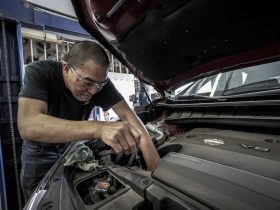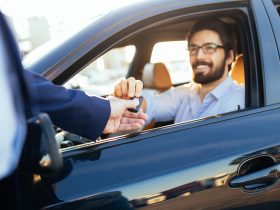Let’s be real, so many people get into accidents every minute of every day, but not a lot of people think it could happen to them as well! But reality hits them and after a while, they feel lost and confused. Well, there isn’t a real recipe on how to live after an accident, but there are ways to get better after such an experience. Here are some tips on how to deal with the aftermath of an accident!
Medical attention
One of the first things you should do is rest up and care for your wounds if you have them. Getting into an accident for whatever reason can cause lots of stress in everyone, if the car gets ruined you’ll need the money to get a new one, and even worse on top of that if you get hurt the medical bills can be staggering. Your first thoughts would probably be about the money and the financial side of things rather than the getting hurt or being emotionally traumatized, but at the end of the day, your wellbeing is more important!
Legal backup
Even minor accidents should be reported as soon as possible, as there are layers and layers of law you have no idea about and the best thing you can do is call a professional to handle it. Experts at The702Firm.com state that having an experienced lawyer in these types of scenarios is the only thing that could save you. Depending on how distraught you are after the accident, you’ll need someone to guide you, answer all the legal questions, help with paperwork, gather evidence and other things, and the only person who is capable of all those things is a good lawyer. When choosing a lawyer to represent you, make sure he is well experienced in the field you need, it will greatly help build your case and you won’t end up blowing away money to someone who doesn’t know what he is doing.
Take a break from driving
Regardless of how bad the accident was, it’s in your best interest to stop driving for a while, or at least to not drive alone. The accident can cause psychological changes in you, causing you to react badly or feel unbearable amounts of anxiety. You might not even notice the subtle change, but it could be triggered if you find yourself in a similar situation. Your doctor’s words should be the end all be all in this matter, but even if you feel like you are not ready to sit behind the wheel again – it’s totally up to you. It’s even better to take a long break and just heal both mentally and physically from this traumatic event.
Talk to others
Each day, thousands upon thousands of people get into all sorts and kinds of accidents. As sad and scary as that sounds, it sure is a bit comforting to know that a lot of people can relate to something you went through. It’s good to open up to your loved ones, as family and friends will always be there for you! But there are also groups and a whole network of people who know exactly how you feel, so you can open up about your experience. This could work as group counselling and therapy, but it will generally help a lot to know that lots of people suffered the same fate as you, so you don’t feel alone.
Learn from past mistakes
You are probably unaware of how common accidents really are, of all sorts and kinds – we always think that it can’t happen to us until it finally does. You can’t change the course of actions, what happened, it happened- but what you can do is be prepared for the next time. From the moment you get into an accident, you need to learn from your mistakes and never repeat them, so you’ll avoid getting into another accident. It’s always better to be safe than sorry!
Final words
At the end of the day, you need to feel lucky that you have survived, a car can be fixed or bought brand new but nobody is going to replace your life. Even if you are the safest driver in the world, chances are the person next to you on the road isn’t, so you need to be alerted at all costs. If you end up in an accident, remember to do all the necessary precautions afterwards and try to remain collected. You are not alone, a lot of people experienced something similar, all you gotta do is reach out and also teach other people to pay more attention on the road!







